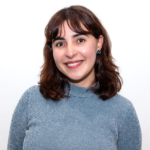December 11, 2022
Program Insight – Ethnic and Migration Studies
Hello everyone – hej allihopa!
As it’s getting closer to the application period, you might be busy looking into potential programs and wondering how to go about all the information. I’m here to make your task a little bit easier and give you an overview of master’s degree in Ethnic and Migration Studies.
For those of you who are wondering what makes me an ‘expert’ in this: hi, I am Gvantsa and I moved to Sweden in 2021 to study Ethnic and Migration Studies! I primarily chose this program for two reasons:
- It’s a highly interdisciplinary program, which means I can look at topics and social issues from different theoretical perspectives, methodological approaches, epistemological perspectives, etc.
- There are very few master’s programs solely focused on migration and ethnicity. There definitely isn’t one in my home country of Georgia, so off to Sweden I went.
Ethnic and Migration Studies program or shortly EMS is founded within the research institute REMESO. This factor was quite important for me, as in my previous studies I had read works of professors from the institute and I knew their thoughts and values aligned with mine. I would highly suggest that you look through the list of tentative lecturers for the program you are selecting and familiarize yourself with their research. This will help you manage expectations and will give you a clearer understanding of the program.
Program Structure
EMS is a 2 year long program, which means it covers 4 semesters and 120ECTs (academic credits). First two semesters cover compulsory courses that give background knowledge in the field of migration, ethnicity, linkage between the two, and how they are affected by modern structures and institutions. The third semester is split in two: 2 compulsory classes and an option to take electives or do 10-week long internship. The last semester is dedicated to thesis research and work.
Classes and Assignments
EMS covers one class at a time, which means we don’t have simultaneous courses. Each class lasts on average 5 weeks. 4 weeks are dedicated to lectures, seminars, group works, and the last week is usually reserved for writing the ‘exam’. Exams mostly involve writing a paper, which corresponds to the class theme. We usually work on a research question or focus on a specific problem within the course. On rare occasions, we have a final exam which involves working on a group assignment, such as policy analysis or writing for an annual EMS publication. Although, this is rare and group assignments are primarily reserved for presentations during the course.
EMS is fairly theoretical program. Each class comes with a heavy reading load and need for reflection and critical analysis. The program aims and is focused on enhancing critical research skills of the students by providing them with different views on topics and guiding them through the process of research and questioning.
Requirements for Acceptance
As the program is based within social studies and covers the topic of ethnicity and migration, it is helpful if you have previous educational experience in the similar fields, such as sociology, political science, international relations, European studies, etc. Nonetheless, program is open to almost everyone with interest, passion, and compassion for the field of migration. In addition to the academic requirements, good knowledge of English is absolutely necessary, as the language of instruction is English and a lot of the reading materials are only available in English.
I believe that Ethnic and Migration Studies program is a valuable experience for anyone who wants to understand inequalities of the modern world structures and contribute to the empowerment of marginalized groups. If you would like to read more about the program, feel free to take a look at the information page. There you will find syllabus, alumni insights, information about lecturers, and many other.
Or you can always leave a comment here and I will happily share more!
Until next time – Gvantsa
____________________________________________________________
Why not continue the conversation with us?
Start with checking out:
Our programmes, the application process, webinars, and our Instagram and Facebook account.
Still left wanting more? Book an appointment with our recruitment coordinator at infocenter@liu.se.




